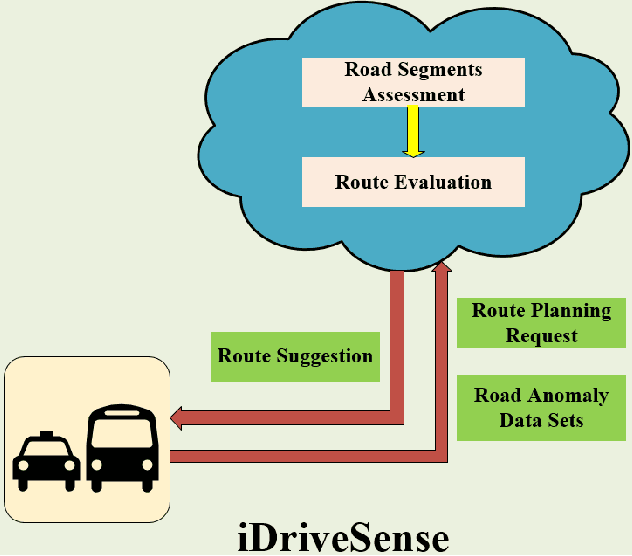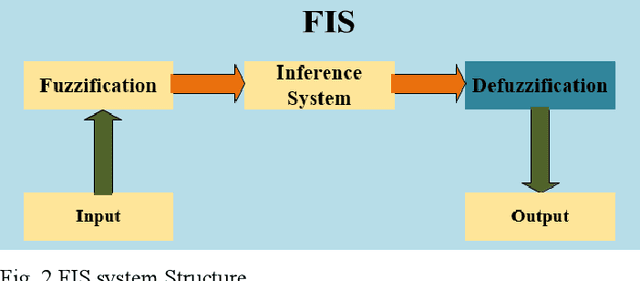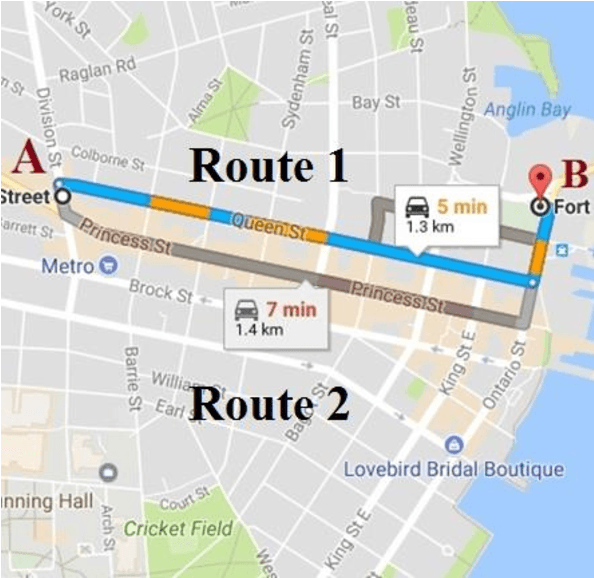iDriveSense: Dynamic Route Planning Involving Roads Quality Information
Paper and Code
Sep 08, 2018



Owing to the expeditious growth in the information and communication technologies, smart cities have raised the expectations in terms of efficient functioning and management. One key aspect of residents' daily comfort is assured through affording reliable traffic management and route planning. Comprehensively, the majority of the present trip planning applications and service providers are enabling their trip planning recommendations relying on shortest paths and/or fastest routes. However, such suggestions may discount drivers' preferences with respect to safe and less disturbing trips. Road anomalies such as cracks, potholes, and manholes induce risky driving scenarios and can lead to vehicles damages and costly repairs. Accordingly, in this paper, we propose a crowdsensing based dynamic route planning system. Leveraging both the vehicle motion sensors and the inertial sensors within the smart devices, road surface types and anomalies have been detected and categorized. In addition, the monitored events are geo-referenced utilizing GPS receivers on both vehicles and smart devices. Consequently, road segments assessments are conducted using fuzzy system models based on aspects such as the number of anomalies and their severity levels in each road segment. Afterward, another fuzzy model is adopted to recommend the best trip routes based on the road segments quality in each potential route. Extensive road experiments are held to build and show the potential of the proposed system.
 Add to Chrome
Add to Chrome Add to Firefox
Add to Firefox Add to Edge
Add to Edge